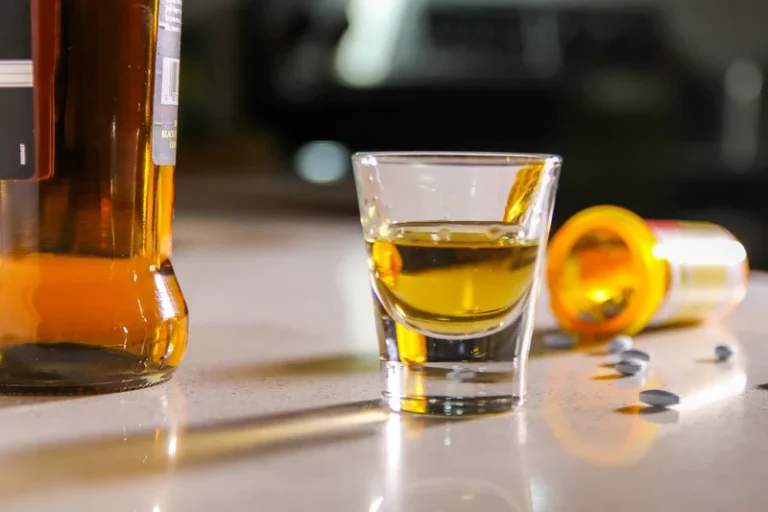
Sugar cravings can arise as a substitute for the emotional regulation previously provided by alcohol. The consumption of sugary foods or drinks can activate the brain’s reward system, providing temporary comfort and pleasure. Understanding the biological factors at play in the relationship between alcoholism and sugar cravings provides valuable insights into the complexity of this phenomenon. By addressing these biological factors in the context of addiction treatment and recovery, individuals can work towards breaking the cycle and achieving a healthier lifestyle. In addition to understanding the relationship between alcohol and sugar cravings, incorporating healthy lifestyle choices can greatly support individuals in their recovery from alcohol addiction. Two key aspects to consider are incorporating physical activities and following a whole foods plant-based diet.
- This shift in cravings occurs as the body and mind seek alternative sources of comfort and reward, and is a significant part of the recovery process for many individuals.
- Striking a balance in sugar consumption is crucial to avoid such issues and maintain overall well-being.
- Symptoms of hypoglycemia can often overlap with those of intoxication, making it challenging to differentiate between the two.
- By recognizing these factors, individuals can work towards managing their cravings and supporting their recovery journey.
Can medication help with alcohol cravings?
” It seems an especially timely question, since March is National Nutrition Month. In addition to supporting recovery, proper nutrition during and after alcohol use disorder treatment can help manage various health concerns. It is essential to work with healthcare professionals, such as registered dietitians or nutritionists, to create a personalized nutrition plan that addresses individual needs and health conditions.

Nourishing Your Body: The Best Diet for Opioid Detoxification
Some may also benefit from working with a nutritionist, dietician, health coach, nutritional coach, nutritional therapist, or other such professionals in order to improve their relationship with food. Knowing how to handle your cravings efficiently is equally as vital as recognizing them. Here’s a compilation of strategies that can help you navigate through the sugar cravings. Awareness that craving sweets is not a failure or a weakness, but a physiological response, will contribute to reducing guilt. This understanding might even augment your confidence in the journey towards sobriety.
Sugar and the Brain

Sugar alcohols such as fructose, lactose, raffinose, and sorbitol are found in foods such as fruit. However, some sugar alcohols, such as sorbitol, may also be in some processed foods and beverages to sweeten them. If you drank a glass of wine at exactly 5pm every night, prepare to have something delicious and hydrating at that time. Have snacks on hand such as dates & almond butter, popcorn, yogurt & berries or granola, dried fruit, fresh fruit, a smoothie, popsicle, seltzers, teas, kombucha.

Dissecting the Definition of Eating Disorders
Recovering alcoholics often experience cravings for sugar, and this can be attributed to various factors, including nutritional deficiencies caused by alcoholism. Let’s explore the connection between alcoholism and nutritional deficiencies, as well as how these deficiencies can lead to sugar cravings. Contemporary research has shown that a high number of alcohol-dependent and other drug-dependent individuals have a sweet preference, specifically for foods with a high sucrose concentration. The neurobiological pathways of drug and “sugar addiction” involve similar neural receptors, neurotransmitters, and hedonic regions in the brain.
Science-Backed Strategies to Overcome Alcohol Cravings
Chaos might be the law of nature, but your dietary habits don’t have to be. Discover effective strategies for alcohol detox, including hydration, nutrient-rich foods, adequate rest, and professional support, to ensure do alcoholics crave sugar a successful recovery journey. Proper nutrition plays a significant role in recovery from alcohol addiction. Certain foods can help rebuild the brain’s ability to grow and evolve, promoting overall well-being.
The Need for Drug Addicts Recovery
Ensuring you’re well hydrated before meals can also curb overeating and consequently, help manage sugar cravings. Heavy drinking can lead to inflammation in the stomach lining and pancreas, which can result in ulcers and affect the absorption of essential nutrients like B vitamins and folic acid. These nutritional deficiencies can contribute to various gastrointestinal illnesses such as irritable bowel syndrome and acid reflux. Hypoglycemia, or low blood glucose, can occur when alcohol is consumed in conjunction with medications commonly used to treat diabetes, such as insulin and sulfonylureas.
Impact of Alcohol on the Brain’s Reward Pathway
Explore what environmental factors inspire addiction, from cultural influences to urban stress. Dive into defining physiological dependence, its symptoms, management strategies, and the path to recovery. Discover the need for drug addicts recovery, from overcoming challenges to embracing healthier lifestyles.
Sugar consumption may provide a temporary sense of comfort and satisfaction, helping individuals manage their cravings and emotional discomfort. Alcoholism is influenced by a combination of genetic, environmental, and behavioral factors. Factors such as family history, social environment, stress, and mental health issues can contribute to the development of alcohol addiction. Over time, regular alcohol consumption can lead to changes in brain chemistry, affecting reward pathways and increasing the risk of cravings. For individuals recovering from alcohol addiction, sugar cravings can be a common occurrence.
Understanding VA Rehab in Massachusetts
Sugar cravings are commonly experienced by individuals in recovery from alcoholism. Understanding how to manage these cravings is essential for maintaining a healthy lifestyle. The craving for sugar in alcoholics can partly be attributed to the drop in blood sugar levels that follows alcohol consumption. https://ecosoberhouse.com/ This drop creates a need for a quick energy boost, often fulfilled by consuming sugary foods and beverages. Sugar can provide an immediate source of energy, similar to the quick effects of alcohol. This substitution helps satisfy the desire for a reward and provides a temporary sense of pleasure.

